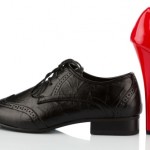How much attention do you pay to voice when you think of a leader or when you hear a speaker? I cut my teeth on old school telephone interviewing so can confirm that voice definitely plays a role in the assessment of someone. Voices are an integral part of our identity and we can all exhibit voice bias whether we realise it or not.
We may not treat all voices equally. I have had to check myself for leaving Clubhouse rooms, (the audio app), realising it was because of my reaction to hearing someone speak. And it was rarely about the content.
Ongoing analysis
We forget that people analyse our voices at all times, sometimes subliminally. This can be during presentations, in interviews, on video calls or even through computer algorithms. Voice is a big piece of who we are, how we think of ourselves and are perceived by others.
Research has shown that it can take less than half a minute to linguistically profile a speaker, and make snap decisions around their socio-economic class, ethnic origin, and even their educational backgrounds. This is changing to some extend as people are more geographically and socially mobile. We are also more likely to favour speakers who have accents similar to our own and show voice bias against accents where we have preconceived negative ideas.
Blind interviews
Voice is going to be even more important when blind interviews become part of the future hiring process landscape, in upcoming diversity recruitment initiatives. Some sectors have used blind auditions when they realised that biases played a part in their selection process. For musicians, blind auditions increased the number of women playing in major orchestras. The Voice show, demonstrated how it was important to focus on the voice only and not be distracted by age, appearance, race, physical ability etc. etc. But it is a singing competition after all and the focus is the voice.
An interview is a competence assessment and voice plays a role which can be positive and negative.
Voice assessment
This can be around:
📌Accent
Many geographies have an accent hierarchy as we assign certain characteristics such as intelligence, pleasantness and prestige to different types of accent. Most cultures attribute an accent of preference to the accent which has the highest level of social prestige. Rosina Lippi-Green, PhD, the American linguistics expert calls this “the standard language ideology.” In the U.K. it used to be called BBC English, but is changing now as trends shift.
People have votes on accents. The New Zealand accent has been voted the sexiest in the world, followed by South African and Irish. In the UK the Brummie accent is the least popular and in the U.S. Pittsburgh accent has been voted the ugliest. Olivia Verhulst confirms the same is true in Spain and France.
We recognise biases in many other areas, gender, race, age, physical ability but accent and voice bias can slip through the net.
📌Syntax
How we structure our sentences.
📌Vocabulary choice
The words we choose.
📌Pitch
Lower pitched voices are considered more leadership like. Both men and women prefer male leaders with lower-pitched voices, and associate lower-pitch with traits such as integrity, strength, and competence. Men and women equally prefer female leaders with lower-pitched voices, and correlate them with traits such as competence and trustworthiness.
📌Delivery
This covers vocal fry in particular. The press have called it the “verbal tic of doom” with a range of negative connotations. These biases disproportionately affect women. Studies show that while vocal fry hinders both men and women’s job prospects, it’s even worse for women.
We tend to perceive people with vocal fry as vain or superficial. Research suggests that vocal fry is a way for women to attempt to speak in a lower tone, essentially to hit the same register as men.
📌Up-speak
Or the high rising terminal or “Valleyspeak” because it is though to have originated in California, is also associated with unprofessionalism and a lack of competence because all sentences end like a question.
A study from Berkeley discovered that if experts use upspeak we do not see it as a sign of incompetence or lack of confidence in the way that we would judge a non-expert. In this case context matters. Those who defend upspeak indicate that any perception around lack of confidence is an outdated social construct to de-legitimise women. When we encourage women to work on their speech patterns we are attempting to impose male norms on their speech patterns.
Voice bias in the workplace
Regardless of whether we move to blind interviews – it could be years away, we still need to do the following to manage our biases around voice and accent:
- Recognise the existence of voice bias and include it in unconscious bias training. The question of vocal fry and upspeak became contentious because these are mainly speech patterns exhibited by women. Women face a “double bind” when it comes to their voices. When women speak the pitch of their voices tends be higher, flexible and experimental, which is not the style of speech we associate with stereotypical leadership qualities. We can penalise women in interviews or professional situations.
- Create diverse teams and workplaces. Recruit individuals with different accents to teams and have those people on hiring panels.
More training needed
Blind interviews are a way of overcoming other biases based on seeing someone physically, whether online or in person. However, they will not work unless we learn to manage voice bias that may lurk in our systems very often undetected. We need a greater understanding and awareness of both accent and voice bias in the workplace. We can only achieve this by including it specifically in our training programmes.
If you want to strengthen your talent pipeline with a diverse candidates – get in touch now.






Hello Dorothy,
how interesting to read this article today.
Just yesterday I had to discuss a similar case while advising an individual. The scenario was actually the opposite I was wondering how to interpret this case: the selection board interviewing a person, online obviously, announced that they would switch off pc-cameras, for connection issues while saying to the candidate to decide freely if to keep it on or off, on her/his side.
What would you suggest, what would be best in this case?
3 blind interviewers versus one visible candidate? Isn’t it awkward a bit?
Hi Chiara – I had this discussion last year and the general consensus is that it is poor recruitment practice. However, because of the job market many candidates are afraid to speak out and were advised to go along with it.
For me it would be a hard no and sends up signals about an organisation. But there were definitely some who recommended compromise.
Here is the article
https://3plusinternational.com/2020/10/cameras-and-online-interviews/
Thanks a lot for your valuable and prompt feedback